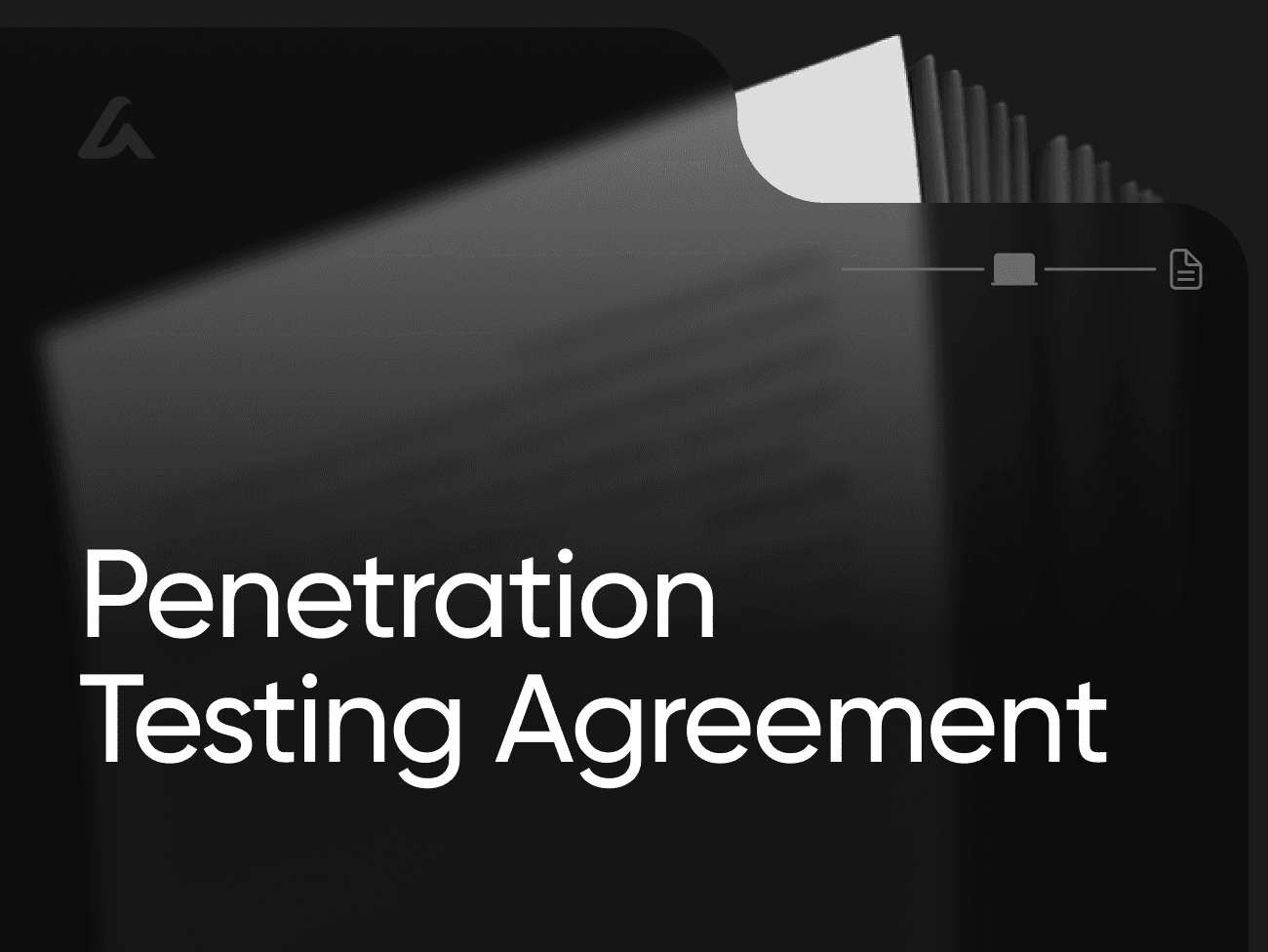AI Lawyer Blog
Self-Proving Affidavit Template 2026: Free Download + AI Help

Greg Mitchell | Legal consultant at AI Lawyer
3
Part of our Last Will and Testament series — focusing on structuring legal intent for end-of-life planning — this guide explains how a Self-Proving Affidavit can streamline probate and protect your estate plan from avoidable delays. A self-proving affidavit turns a properly signed will into a “self-proved” will so the probate court can accept it without hauling in witnesses years later. The testator and witnesses swear before a notary that the will was executed correctly, and that sworn statement travels with the will. In plain terms: it saves time, cuts hassle, and reduces risk if witnesses move away, forget details, or pass on.
Download the free Self-Proving Affidavit template or customize one with our AI Generator — then have a local attorney review before you sign.
You Might Also Like:
Separation Agreement Template- Guide (Free Download + AI Generator)
Rental Inspection Checklist Template (Free Download + AI Generator)
1. What Is a Self-Proving Affidavit?
A self-proving affidavit is a notarized statement signed by the testator (the person making the will) and the will’s witnesses confirming that the will was executed with all required formalities. When attached to the will, it allows the probate court to accept the will without requiring witness testimony, which can otherwise delay or complicate probate. Many states provide a statutory form and treat a properly executed affidavit as conclusive proof of those formalities.
2. Why You Need a Self-Proving Affidavit in 2026?
Probate can already be slow; chasing down witnesses makes it slower. Recent national research found the average U.S. probate timeline is about 20 months, a duration most families dramatically underestimate — another reason to eliminate avoidable steps like post-death witness affidavits.
Beyond speed, a self-proving affidavit helps when witnesses relocate, cannot be found, or have died. Many courts will otherwise require an in-person appearance or a sworn statement from a witness to prove up the will’s execution — an expensive, time-consuming detour during an already stressful time.
3. How a Self-Proving Affidavit Works?
At the will signing, the testator and two witnesses:
Appear before a notary: All parties are physically present (or follow state-approved remote rules) and verify identity.
Acknowledge the will: The testator confirms they signed the will voluntarily and while of sound mind; witnesses confirm they observed the signing (or that the testator acknowledged the signature) and that all legal formalities were followed.
Sign the affidavit: The testator and witnesses sign the affidavit; the notary completes the certificate and seal.
Attach to the will: The affidavit is stapled or otherwise securely attached to the original will and stored together.
With those steps complete, the will is typically considered “self-proved” under state law, which means the affidavit itself serves as proof of proper execution during probate.
4. Legal Context
Self-proving affidavits are expressly authorized in the Uniform Probate Code (UPC) §2-504, which many states have adopted in whole or in part. The UPC permits a will to be “simultaneously executed, attested, and made self-proved” by acknowledgment before an officer authorized to administer oaths, using substantially prescribed language. States that have adopted or mirrored this framework include, for example, Massachusetts.
Two illustrative state statutes:
Texas Estates Code §251.1045: Allows a will to be simultaneously executed, attested, and made self-proved before an officer authorized to administer oaths (and includes statutory language). It also addresses how a signature on the self-proving affidavit can, if needed, be treated as a signature to the will to prove execution.
Florida Statutes §732.503: Permits a will or codicil to be made self-proved at execution or later, by the testator’s acknowledgment and the witnesses’ affidavits before an authorized officer, with a certificate in a statutorily prescribed form.
How widespread is the concept? LII’s overview notes that all U.S. jurisdictions except D.C., Maryland, Ohio, and Vermont recognize self-proving wills in some form — underscoring how standard this practice has become.
Electronic wills note: States adopting the Uniform Electronic Wills Act often require the self-proving components to be completed at the time of electronic execution, with metadata logically associated to the e-will. Always check your state’s e-will statute before relying on remote or electronic procedures.
5. Key Elements to Include
A compliant self-proving affidavit typically contains:
Testator’s declaration: Identity, voluntary signing, capacity, and that the document is the testator’s will.
Witness statements: Presence at signing (or acknowledgment), competence, and absence of undue influence or duress.
Notary acknowledgment: Certification that all signers appeared and swore/affirmed under oath.
Statutory form language: “Substantially” the words provided in your state’s code (don’t improvise; follow the statute).
6. Benefits at a Glance
Faster probate: Eliminates the need to track and subpoena witnesses.
Lower costs: Fewer hearings and affidavits to prepare to reduce attorney time.
Fewer vulnerabilities: Protects against delays if witnesses can’t be found or have died.
Clear compliance record: Using statutory language creates a strong evidentiary trail.
7. Steps to Create a Self-Proving Affidavit
Step 1 — Prepare the will and affidavit: Pull the exact statutory wording required in your state (UPC-style language or state-specific text).
Step 2 — Arrange qualified witnesses: Most states require two adult, competent witnesses not named to receive property under the will. Confirm any state-specific limitations.
Step 3 — Sign in one sitting before a notary: The testator and both witnesses sign the affidavit (and typically the will) before an officer authorized to administer oaths; the notary completes the certificate and seal.
Step 4 — Attach and store securely: Keep the affidavit attached to the original will in a fire-resistant safe or bank box. Tell your executor where it’s stored.
Step 5 — Consider e-signature rules where applicable: If your state allows electronic wills, ensure the self-proving steps are executed in compliance with the e-will statute (timing, platform, metadata).
8. Common Mistakes to Avoid
Using the wrong form language: Drafting “close enough” text can invalidate the self-proving effect; use statutory wording.
Beneficiary witnesses: In many states, a beneficiary-witness risks voiding their gift or complicating probate — pick neutral adults.
Missing notarization: An unsigned or unnotarized affidavit won’t self-prove anything.
Separating documents: Don’t store the affidavit apart from the will; courts expect them together.
Skipping a review when moving states: If you relocate, confirm your new state’s requirements (format, witness rules, e-will acceptance).
9. When a Self-Proving Affidavit May Not Be Accepted
Courts can set aside a self-proving affidavit when:
Statutory defects exist: Wrong language, missing signatures, or an unauthorized notary.
Undue influence, fraud, or lack of capacity is credibly alleged; the affidavit does not immunize a will from substantive challenges.
Out-of-state formalities conflict: Some states honor foreign wills; others scrutinize deviations closely. Verify your forum’s rules before relying on an out-of-state form.
10. Tips for Ensuring Validity
Mirror the statute: Copy your state’s exact “substantially as follows” text; don’t paraphrase.
Capture all signatures cleanly: Blue ink, legible names, and notary seal quality matter.
Use a notary experienced with wills: They’ll confirm IDs, administer oaths properly, and avoid clerical errors.
Plan for e-wills carefully: If using remote witnessing or e-signature, follow the Uniform Electronic Wills Act or state equivalent to the letter.
Revisit after life changes: New marriage, divorce, relocation, or major assets are good triggers to review the will and affidavit.
11. Checklist — Self-Proving Affidavit Requirements
Testator’s sworn declaration that the will was signed voluntarily and while of sound mind
Two competent, disinterested witness statements confirming execution formalities
Notary’s acknowledgment/certificate with seal and date
Statutory language from your state (UPC-style or state-specific)
Affidavit attached to the original will and stored together
If electronic: self-proving completed at execution under the state’s e-wills law
Download the Full Checklist Here
12. FAQs — Self-Proving Affidavit
Q: Is a self-proving affidavit mandatory?
A: No, it’s not legally required in most states, but it’s highly recommended. Without one, your witnesses may need to appear in court years later to confirm the will’s validity. Having a self-proving affidavit in place eliminates this extra step, which can save your executor time, reduce probate delays, and minimize stress for your loved ones.
Q: Can I add a self-proving affidavit to an existing will?
A: In many states, yes. You can prepare and sign the affidavit after the will has been executed, provided it’s done with the original witnesses or according to your jurisdiction’s rules. The affidavit should then be physically attached to the will and stored together. Always check your state’s laws before proceeding, as requirements vary.
Q: Do all states recognize self-proving wills?
A: Almost all do, but there are a few exceptions — currently, D.C., Maryland, Ohio, and Vermont do not. If you move to a state with different rules, you should review your will and affidavit with a local attorney to ensure they remain valid under that state’s laws.
Q: Does a self-proving affidavit help if the will is contested?
A: While it won’t stop challenges based on claims like undue influence or lack of capacity, it does provide conclusive proof that the will was executed properly. This means disputes are less likely to hinge on whether the legal formalities were followed or whether witnesses are available to testify.
Q: How much does it cost to notarize a self-proving affidavit?
A: Notary fees vary, but you can usually expect to pay between $25 and $50, depending on your location and whether you use a mobile, in-office, or remote notary. Some attorneys include the service as part of an estate planning package.
Q: Can I create a self-proving affidavit for an electronic will?
A: Yes, in states that allow e-wills, but you must follow their specific procedures — often requiring the affidavit to be completed at the time of signing with secure video conferencing, identity verification, and proper metadata storage. Skipping these steps can invalidate the self-proving feature for an electronic will.
Sources and References
Legal and procedural information in this guide is based on the Uniform Probate Code (UPC) §2-504, which authorizes simultaneous execution and self-proving of wills before a notary, and the Legal Information Institute (LII) overview of self-proving wills. State-specific frameworks are illustrated through Texas Estates Code §251.1045 and Florida Statutes §732.503, both of which provide statutory self-proving forms. Broader adoption trends and exceptions are informed by comparative data from the LII and state probate codes, confirming that nearly all U.S. jurisdictions except D.C., Maryland, Ohio, and Vermont recognize self-proving wills. Guidance on electronic wills references the Uniform Electronic Wills Act (UEWA) and related state enactments addressing e-notarization and remote witnessing.
Sources and References
Legal and procedural details in this guide are derived from the Uniform Probate Code (UPC) §2-504, which authorizes simultaneous execution and self-proving of wills, and the Legal Information Institute (LII) overview of self-proving wills. State-specific frameworks are illustrated through Texas Estates Code §251.1045 and Florida Statutes §732.503, both providing statutory language for self-proving forms. Adoption trends and exceptions are supported by comparative data from LII and state probate codes, confirming that nearly all U.S. jurisdictions — except D.C., Maryland, Ohio, and Vermont — recognize self-proving wills. Guidance on electronic wills and notarization draws from the Uniform Electronic Wills Act (UEWA) and related state enactments governing e-signatures and remote witnessing procedures.
Disclaimer
This article is for informational purposes only and does not constitute legal advice. Estate laws vary by state (and electronic-wills rules vary even more). Consult a qualified attorney in your jurisdiction to tailor your will, self-proving affidavit, and execution ceremony to current law.
Get Started Today
A self-proving affidavit is a small add-on with outsized benefits: fewer delays, fewer headaches, and a smoother path through probate. Download the free Self-Proving Affidavit template or customize one with our AI Generator, then have a local attorney confirm your state’s exact wording and witnessing rules before you sign.
For more resources on estate planning, explore our Last Will and Testament category — covering wills, affidavits, and other essential tools to protect your wishes and ease the probate process.
You Might Also Like:



